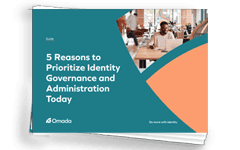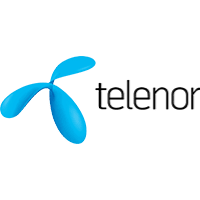The second annual Identity Management Day is a day for awareness and education for business leaders, IT decision makers, and the general public about the importance of managing and securing digital identities. The Identity Defined Security Alliance (IDSA) created Identity Management Day in 2021 as a way pf promoting best practices from a variety of vendors in the identity security space to help businesses protect themselves against identity-related breaches.
Businesses today are faced with a growing list of attack types, including tried and true methods like phishing, distributed denials of service (DDoS), which are still quite effective, but also emerging attack types like crypto-jacking and pouncing on zero-day vulnerabilities that keep security leaders up at night. Making matters more complicated is the continued shortage of cybersecurity workers, where even in a year where job shortages decreased by 12.8% (a good sign, to be sure), there were still 2.72 million unfilled cybersecurity jobs reported in October of 2021. All this to say, cybersecurity teams are tasked with doing a lot more, with a lot less resources than they need. With a continually changing IT landscape, securing the enterprise has never been more challenging, and it all starts with securing identities.
There are a couple trains of thought with these trends. First, some security practitioners may jump towards solutions that provide broad, albeit shallow, capabilities to cover their bases and try to get by with a converged solution set that goes a mile wide and an inch deep. We should note that there is some logic to this approach. When teams are spread thin, they have to make do with what they’ve got, and as such IAM leaders think that less solutions equals less work for teams to patch different solutions together. However, it doesn’t always work out this way, especially if selected solutions, homegrown or commercial, lack critical capabilities. This is particularly true when thinking about securing and managing identities, which continues to surge in priority amongst IT and security leaders.
Next, identity security is an initiative that requires complete visibility and ease of operability for each user to access what they need, when they need it, but without excessive access rights. This is otherwise known as least privilege. In order to successfully implement least privilege, there are a variety of capabilities required, including strong authentication, provisioning (and, when required, deprovisioning) access to various data and applications, smooth workflows for accessing data and applications, secure credential and secrets management, and managing the entirety of the identity lifecycle. There are of course many other capabilities required to completely manage and secure all identities, but the complexity and uniqueness of each business today means that there are no simple solutions. Further, these use cases require deep integrations with the business itself to ensure that business efficiency is maintained, even as security is bolstered. The best way to go at it, is together.
As businesses grow and evolve, heterogenous environments rise, with a huge variety of identity types, business resources, and data flowing through that requires constant vigilance from the IAM team. Cloud resources are simply not governed like on-premises ones, and permanent employees access data and systems differently than third-party contractors do. To help gain visibility and control, having centralized systems that share and ingest data from other identity-related solutions is critical. Each organization has its own appetite for risk, and balancing security with efficiency can be seen as a compromise that results in a lose-lose. However, it doesn’t have to be this way. By implementing best in class solutions for the most important security and business operations initiatives, organizations can be sure that the two aren’t at odds with each other.
The importance of finding trusted partners to implement strong identity management and security is critical and ensuring that the variety of tools and applications have fluid interoperability is sometimes even more important. Omada is proud to be a part of the Identity Defined Security Alliance (IDSA) that services to facilitate community collaboration to help organizations reduce risk by providing education, best practices, and resources. We encourage everyone to check out our booth at Identity Management Day and we’ll be happy to chat!

























